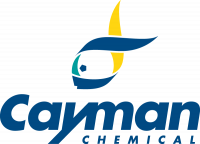Cookie preferences
This website uses cookies, which are necessary for the technical operation of the website and are always set. Other cookies, which increase the comfort when using this website, are used for direct advertising or to facilitate interaction with other websites and social networks, are only set with your consent.
Configuration
Technically required
These cookies are necessary for the basic functions of the shop.
"Allow all cookies" cookie
"Decline all cookies" cookie
CSRF token
Cookie preferences
Currency change
Customer-specific caching
FACT-Finder tracking
Individual prices
Selected shop
Session
Comfort functions
These cookies are used to make the shopping experience even more appealing, for example for the recognition of the visitor.
Note
Show the facebook fanpage in the right blod sidebar
Statistics & Tracking
Affiliate program
Conversion and usertracking via Google Tag Manager
Track device being used

If you have any questions, please use our Contact Form.
You can also order by e-mail: info@biomol.com
Larger quantity required? Request bulk
You can also order by e-mail: info@biomol.com
Larger quantity required? Request bulk
Quorum sensing is a regulatory system used by bacteria for controlling gene expression in... more
Product information "N-hexadecanoyl-L-Homoserine lactone"
Quorum sensing is a regulatory system used by bacteria for controlling gene expression in response to increasing cell density. This regulatory process manifests itself with a variety of phenotypes including biofilm formation and virulence factor production. Coordinated gene expression is achieved by the production, release, and detection of small diffusible signal molecules called autoinducers. The N-acylated homoserine lactones (AHLs) comprise one such class of autoinducers, each of which generally consists of a fatty acid coupled with homoserine lactone (HSL). Regulation of bacterial quorum sensing signaling systems to inhibit pathogenesis represents a new approach to antimicrobial therapy in the treatment of infectious diseases. AHLs vary in acyl group length (C4-C18), in the substitution of C3 (hydrogen, hydroxyl, or oxo group), and in the presence or absence of one or more carbon-carbon double bonds in the fatty acid chain. These differences confer signal specificity through the affinity of transcriptional regulators of the LuxR family. C16-HSL is one of a number of lipophilic, long acyl side-chain bearing AHLs, including its monounsaturated analog C16:1-(L)-HSL, produced by the LuxI AHL synthase homolog SinI involved in quorum-sensing signaling in S. meliloti, a nitrogen-fixing bacterial symbiont of certain legumes. C16-HSL is the most abundant AHL produced by the proteobacterium R. capsulatus and activates genetic exchange between R. capsulatus cells. N-Hexadecanoyl-L-homoserine lactone and other hydrophobic AHLs tend to localize in relatively lipophilic cellular environments of bacteria and cannot diffuse freely through the cell membrane. The long-chain N-acylhomoserine lactones may be exported from cells by efflux pumps or may be transported between communicating cells by way of extracellular outer membrane vesicles.Formal Name: N-[(3S)-tetrahydro-2-oxo-3-furanyl]-hexadecanamide. CAS Number: 87206-01-7. Synonyms: C16-HSL, N-palmitoyl-L-Homoserine. Molecular Formula: C20H37NO3. Formula Weight: 339.5. Purity: >95%. Formulation: (Request formulation change), A crystalline solid. Solubility: Chloroform: 1 mg/ml. SMILES: CCCCCCCCCCCCCCCC(=O)N[C@H]1CCOC1=O. InChi Code: InChI=1S/C20H37NO3/c1-2-3-4-5-6-7-8-9-10-11-12-13-14-15-19(22)21-18-16-17-24-20(18)23/h18H,2-17H2,1H3,(H,21,22)/t18-/m0/s1. InChi Key: QJIXVOQAEZMUIH-SFHVURJKSA-N.
| Keywords: | C16-HSL, N-palmitoyl-L-Homoserine, N-[(3S)-tetrahydro-2-oxo-3-furanyl]-hexadecanamide |
| Supplier: | Cayman Chemical |
| Supplier-Nr: | 13064 |
Properties
| Application: | Bioactive lipid assays |
| MW: | 339.5 D |
| Formula: | C20H37NO3 |
| Purity: | >95% |
| Format: | Crystalline Solid |
Database Information
| CAS : | 87206-01-7| Matching products |
Handling & Safety
| Storage: | -20°C |
| Shipping: | +20°C (International: -20°C) |
Caution
Our products are for laboratory research use only: Not for administration to humans!
Our products are for laboratory research use only: Not for administration to humans!
Information about the product reference will follow.
more
You will get a certificate here
Viewed



